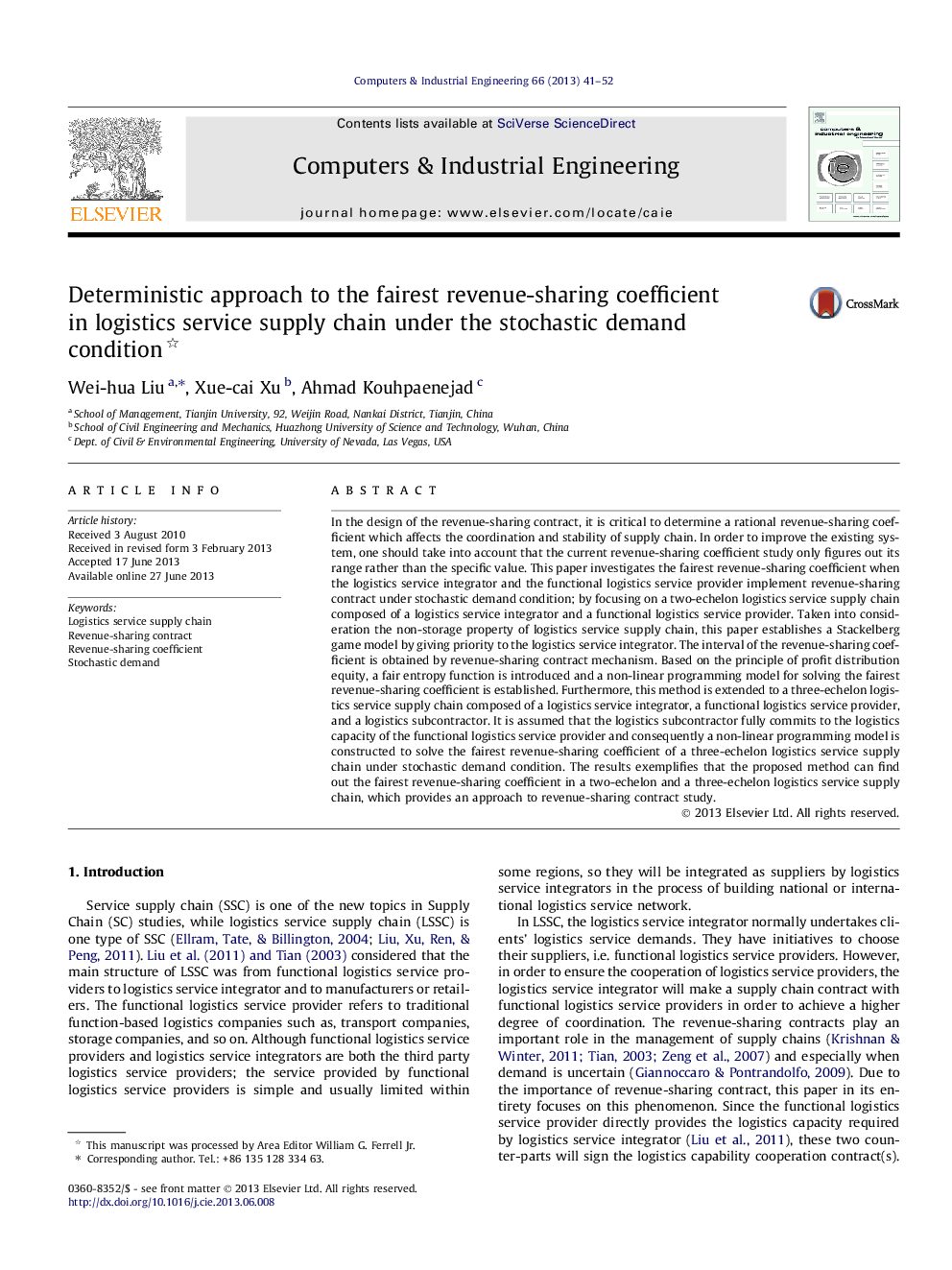| Article ID | Journal | Published Year | Pages | File Type |
|---|---|---|---|---|
| 1134223 | Computers & Industrial Engineering | 2013 | 12 Pages |
•Two revenue-sharing contracts in two-echelon and three-echelon LSSC are proposed.•Stackelberg game and profit distribution equity are considered in the models.•A method for solving the fairest revenue-sharing coefficient is proposed.•The proposed method can find out the fairest revenue-sharing coefficient.
In the design of the revenue-sharing contract, it is critical to determine a rational revenue-sharing coefficient which affects the coordination and stability of supply chain. In order to improve the existing system, one should take into account that the current revenue-sharing coefficient study only figures out its range rather than the specific value. This paper investigates the fairest revenue-sharing coefficient when the logistics service integrator and the functional logistics service provider implement revenue-sharing contract under stochastic demand condition; by focusing on a two-echelon logistics service supply chain composed of a logistics service integrator and a functional logistics service provider. Taken into consideration the non-storage property of logistics service supply chain, this paper establishes a Stackelberg game model by giving priority to the logistics service integrator. The interval of the revenue-sharing coefficient is obtained by revenue-sharing contract mechanism. Based on the principle of profit distribution equity, a fair entropy function is introduced and a non-linear programming model for solving the fairest revenue-sharing coefficient is established. Furthermore, this method is extended to a three-echelon logistics service supply chain composed of a logistics service integrator, a functional logistics service provider, and a logistics subcontractor. It is assumed that the logistics subcontractor fully commits to the logistics capacity of the functional logistics service provider and consequently a non-linear programming model is constructed to solve the fairest revenue-sharing coefficient of a three-echelon logistics service supply chain under stochastic demand condition. The results exemplifies that the proposed method can find out the fairest revenue-sharing coefficient in a two-echelon and a three-echelon logistics service supply chain, which provides an approach to revenue-sharing contract study.
